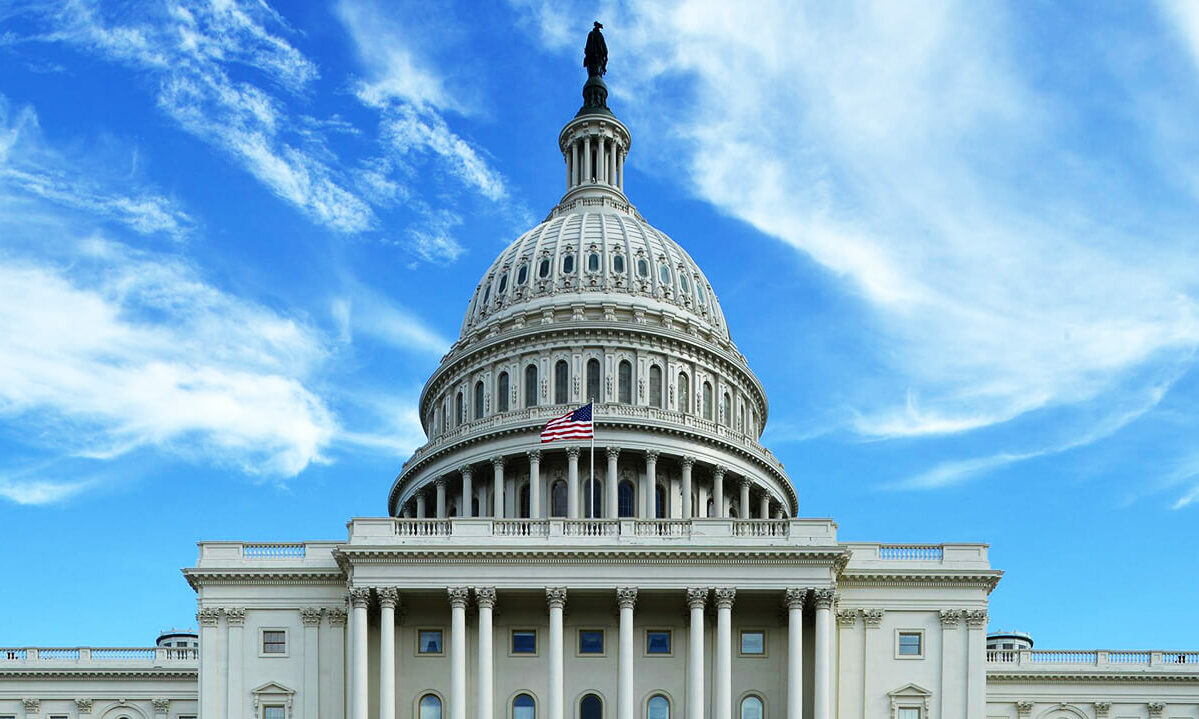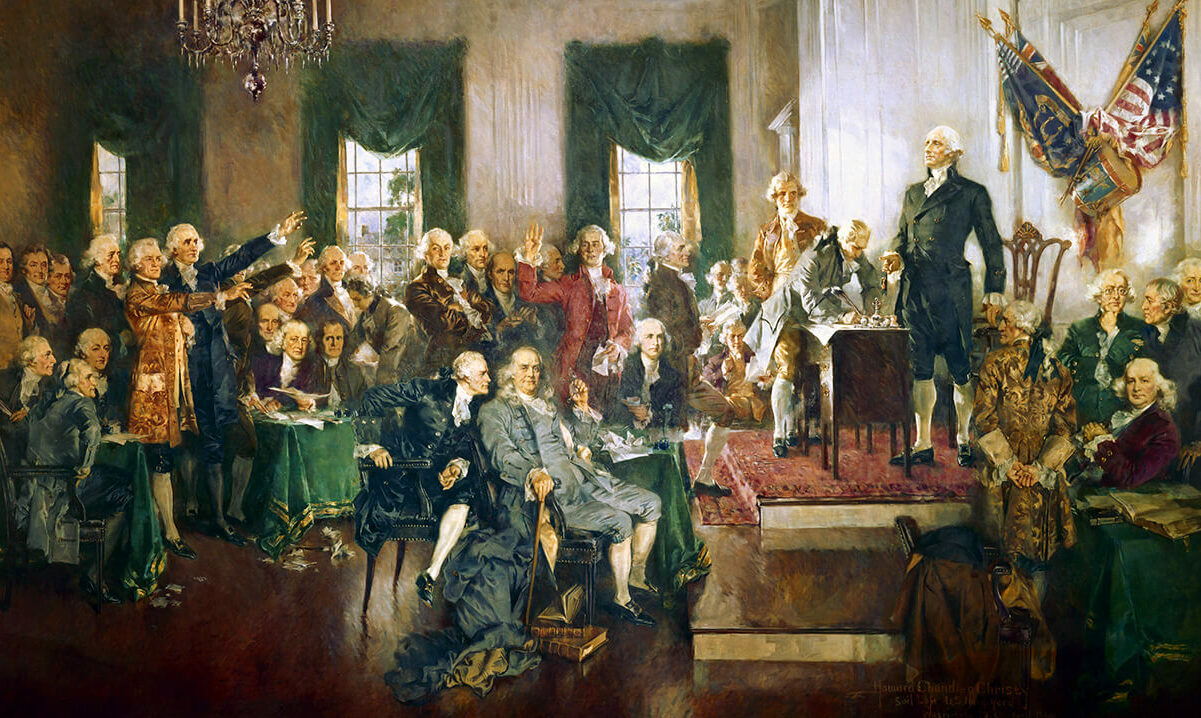There is no substitute for immersing oneself in original, primary source material if one hopes to understand American history. However, it is also useful (and enjoyable) to read books about great American leaders and events. The following list is far from comprehensive, but it includes works that we have found to be helpful. We hope it is a valuable starting place for those interested in learning more about America’s Godly heritage.
WallBuilders has provided the following list of books to provide helpful information and sources for people who want to dig deeper and research on their own. We do not endorse every aspect of every book, but we believe that each provides a good, balanced, and reliable overview its subject. Some of these books are available as ebooks, while some may be found at libraries or can be purchased through online booksellers.
American History
- Gary Amos, Defending the Declaration (Providence Foundation: 1996)
- Taylor Branch, Parting The Waters: America in the King Years, 1954-1963 (Simon & Schuster, 1988)
- Derek H. Davis, Religion and the Continental Congress, 1774-1789: Contributions to Original Intent (Oxford University Press, 2000)
- Daniel L. Dreisbach, Reading the Bible with the Founding Fathers (Oxford University Press, 2016)
- Daniel L. Dreisbach and Mark David Hall, The Sacred Rights of Conscience: Selected Readings on Religious Liberty and Church-State Relations in the American Founding (Liberty Fund Press, 2009)
- Daniel L. Dreisbach, Mark D. Hall, and Jeffry H. Morrison, The Forgotten Founders on Religion and Public Life (Notre Dame University Press, 2009)
- Daniel L. Dreisbach, Mark D. Hall, and Jeffry H. Morrison, The Founders on God and Government (Rowman & Littlefield, 2004)
- Dinesh D’Souza,What’s So Great About America? (Regnery Publishing, 2015)
- John Eidsmoe, Christianity and the Constitution: The Faith of our Founding Fathers (Baker Academic, 1995)
- David D. Hall, A Reforming People: Puritanism and the Transformation of Public Life in New England (Alfred A. Knopf, 2011)
- Philip Hamburger, The Separation of Church and State (Harvard University Press 2004)
- Benjamin Hart, Faith and Freedom: The Christian Roots of American Liberty (Lewis & Stanley, 1988)
- James H. Hutson, Religion and the Founding of the American Republic (Washington, D.C.: Library of Congress, 1998)
- Paul Johnson, A History of the American People (HarperCollins, 1997)
- Thomas R. Kidd, God of Liberty: A Religious History of the American Revolution (Basic Books, 2010)
- Barry Loudermilk, And Then They Prayed. Moments in American History Impacted by Prayer (Campbell: CA: FastPencil, 2011)
- Donald S. Lutz, The Origins of American Constitutionalism (Baton Rouge: Louisiana State University Press, 1988)
- Peter Marshall & David Manuel, The Light and the Glory: 1492-1793 (Grand Rapids, MI: Fleming H. Revell Company, 1977, reprint 2009)
- Peter Marshall & David Manuel, From Sea to Shining Sea: 1787-1837 (Grand Rapids, MI: Fleming H. Revell Company, 1985, reprint 2009)
- Peter Marshall & David Manuel, Sounding Forth The Trumpet: 1837-1860 (Grand Rapids, MI: Fleming H. Revell Company, 1998, reprint 2001)
- Stephen McDowell, America’s Providential History (Providence Foundation, 1991)
- Stephen McDowell, Liberating the Nations (Providence Foundation, 1995)
- William H. McGuffey, McGuffey’s Eclectic Reader (Various publishers: various editions between 1836-1901). These books covered grades 1 through 5.
- James McPherson, Battle Cry Freedom: The Civil War Era (Oxford University Press, 1988)
- Robert Middlekauff, The Glorious Cause: The American Revolution: 1763-1789 (Oxford University Press, 2005)
- Clinton Rossiter, 1787 The Grand Convention (WW Norton, 1966)
- Leland Ryken, Worldly Saints: The Puritans As They Really Were (Zondervan, 1990)
- Barry Alan Shain, The Myth of American Individualism: The Protestant Origins of American Political Thought (Princeton University Press, 1994)
- Harry Stout, The New England Soul: Preaching and Religious Culture in Colonial New England 2nd (Oxford University Press, 2011)
- Thomas G. West, Vindicating the Founders (New York: Rowman & Littlefield Publishers, 1997, reprint 2001)
Biographies
- Andrew Allison, The Real Thomas Jefferson (Washington, D. C.: National Center for Constitutional Studies, 1983)
- Glenn Beck, Being George Washington: The Indispensable Man, as You’ve Never Seen Him (New York: Threshold Editions, 2011)
- E. Bradford, Worthy Company: Brief Lives of the Framers of the United States Constitution (Plymouth Rock Foundation: 1982)
- Richard Carwardine, Lincoln: A Life of Purpose and Power (Knopf, 2003)
- Ron Charnow, Alexander Hamilton (Penguin Press, 2004)
- Allen Guelzo, Abraham Lincoln: Redeemer President (Eerdmans, 2002)
- Mark David Hall, Roger Sherman and the Creation of the American Republic (Oxford University Press, 2012)
- Charles E. Hambrick-Stowe, Charles G. Finney and the spirit of American Evangelicalism (Eerdmans, 1996)
- Bill Kauffman, Forgotten Founder, Drunken Prophet: The Life of Luther Martin (ISI Books, 2008)
- Michael Kazin, A Godly Hero: The Life of William Jennings Bryan (Anchor, 2007)
- Thomas Kidd, Patrick Henry: First Among Patriots (Basic Books, 2011)
- Peter Lillback, with Jerry Newcombe, George Washington’s Sacred Fire (Providence Forum Press, 2006)
- George Marsden, Jonathan Edwards: A Life (Yale University Press, 2004)
- David McCullough, John Adams (Simon & Schuster, 2008)
- Stephen McDowell, Apostle of Liberty: The World-Changing Leadership of George Washington (Cumberland Publishing, 2007)
- Robert Middlekauff, The Mathers: Three Generations of Puritan Intellectuals, 1596-1728 (University of California Press, 1999)
- Edmund Morgan, Roger Williams: The Church and the State (Harcourt Brace Jovanovich, 1967)
- Edmund Morgan, The Puritan Dilemma: The Story of John Winthrop (Scott, Foresman, and Company, 1958)
- Jeffry H. Morrison, John Witherspoon and the Founding of the American Republic (University of Notre Dame Press, 2005)
- Michal Novak and Jana Novak, Washington’s God: Religion, Liberty, and the Father of Our Country (Perseus Books, 2006)
- Charles Page Smith, James Wilson: Founding Father, 1742-1798 (1956; reprint, University of North Carolina Press, 2011)
- PragerU, Trailblazers of America (PragerU, 2025): biographical resource for middle school ages
- Ira Stoll, Samuel Adams: A Life (Free Press, 2009)
- Harry Stout, The Divine Dramatist: George Whitefield and the Rise of Modern Evangelicalism (Eerdmans, 1991)
- Michael Toth, Founding Federalist: The Life of Oliver Ellsworth (ISI Books, 2011)
- Harlow Giles Unger, John Quincy Adams (Da Capo, 2012)
- Gordon S. Wood, The Americanization of Benjamin Franklin (Penguin Press, 2004)
Christianity & Worldview
- Dinesh D’Souza, What’s So Great About Christianity? (Regnery Publishing, 2008)
- John Eidsmoe, Columbus & Cortez, Conquerors for Christ (New Leaf Press, 1992)
- James Garlow, Well Versed: Biblical Answers to Today’s Tough Issues (Regnery Faith, 2016)
- Wayne Grudem, Politics According to the Bible: A Comprehensive Resource for Understanding Modern Political Issues in Light of Scripture (Zondervan, 2010)
- Nathan O. Hatch, The Democratization of American Christianity (Yale University Press, 1991)
- Martin Marty, A Short History of Christianity ed. (Augsburg Fortress Publishers, 1987)
- Eric Nelson, The Hebrew Republic: Jewish Sources and the Transformation of European Political Thought (Harvard University Press, 2010)
- Quentin Skinner, The Foundations of Modern Political Thought: The Renaissance (Cambridge University Press, 1978)
- Quentin Skinner, The Foundations of Modern Political Thought: The Age of Reformation (Cambridge University Press, 1978)
- Rodney Stark, The Victory of Reason: How Christianity Led to Freedom, Capitalism, and Western Success (Random House, 2005)
- John Witte Jr., The Reformation of Rights: Law, Religion, and Human Rights in Early Modern Calvinism (Cambridge University Press, 2007)
![]()



